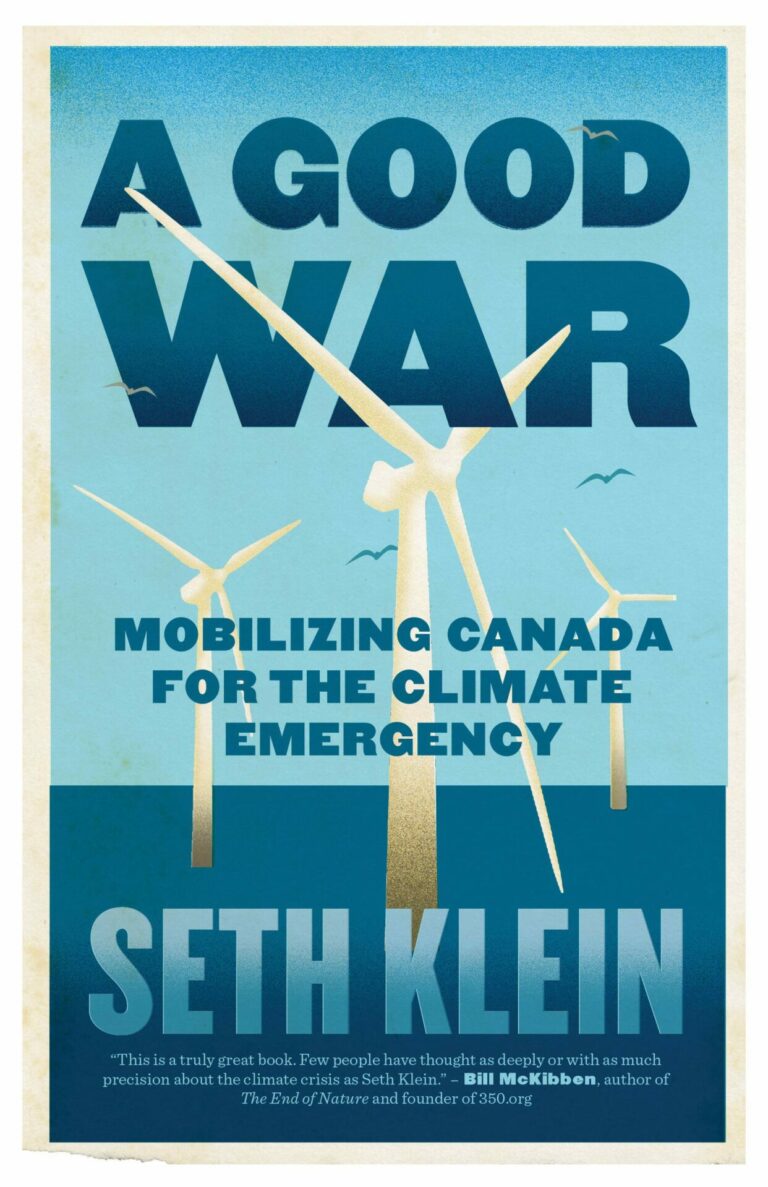Seth Klein | A Good War: Mobilizing Canada for the Climate Emergency
Reviewed by: Howard StewartAbout the Author: Seth Klein is a freelance policy consultant, speaker, researcher, and writer based in Vancouver. Currently Team Lead and Director of Strategy with the Climate Emergency Unit, Seth earlier spent 22 years as director of the BC office of the Canadian Centre for Policy Alternatives (CCPA). Seth is also a columnist with the National Observer, adjunct professor with SFU’s Urban Studies program, and research associate with the CCPA.
About the Book: Seth Klein’s Good War is timely and important. It’s well written too, though it doesn’t make for good bedtime reading. It’s about our urgent need to go to war to save the world from the deepening climate crisis. As Al Gore did fifteen years ago and the UN fifteen years before him, Klein explores the ‘inconvenient truth’ about accelerating climate change: If we want to be spared its most severe and catastrophic outcomes then we’d better start acting like it.
When the first global treaty on climate change was penned in 1992, we still had considerable margin for manoeuvre. Then we burned fossil fuels like there was no tomorrow though the 1990s, the decade of SUVs. We’ve been doing it ever since and have squandered any wiggle room we used to have. Dealing effectively with climate change now requires mobilizing on a scale last seen during our global war against fascism in the 1940s. That’s Klein’s elevator pitch: we’ve done it before, we can do it again, and our wartime experience offers us invaluable guidance about how to “… mobilise all of society, galvanise our politics and fundamentally remake our economy” (p. xix) in the face of this existential threat.
What’s stopping us? First, Klein blames a ‘new climate denialism’ that paralyses our politicians and enables our fossil fuel industries. Only a small minority of us north of the 49th still deny the human role in climate change, yet many of our leaders go on denying our need to do much about it. Instead, they collectively cling to ‘incremental’ or ‘adaptive’ approaches so conservative that even dowdy Economist magazine abandoned them years ago.
Yet it really is a dire, civilization-threatening emergency. Whence Klein’s WWII analogy, the vehicle he uses to show us how to best address today’s crisis, rather than being defeated by it: “… once emergencies are truly recognised, what seemed politically impossible and economically off-limits can be quickly embraced…” (p. xxvii).
Why wade into such a maelstrom of political and economic peril? Most readers are already familiar, but here’s a short list of the most serious effects we’re facing, according to almost every climate scientist: massive disruption of food systems, growing numbers of extreme heat events, far more catastrophic weather events, accelerated sea level rise, growing losses of fresh water resources, spikes in insect-borne diseases, and massive displacements of human populations.
I could go on. But better if you come and listen to Seth speak and debate these matters at our next Readers and Writers Festival, July 21-23, 2023.
Please fill out the form below to receive news from us.


